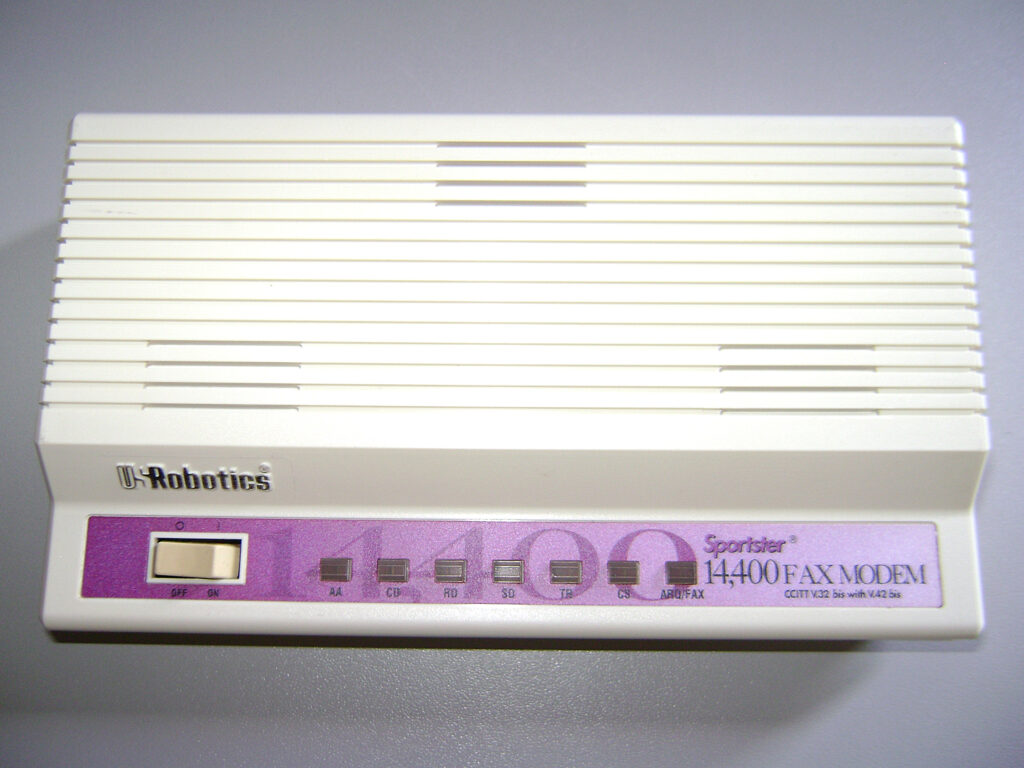The Legacy of Dial-Up Internet: Is it Truly Dead?
In the annals of internet history, there exists a relic of a bygone era: the unmistakable sound of dial-up internet connecting. For those who remember, it was a symphony of screeches and beeps followed by the triumphant declaration, “You’ve got mail!” But as the world hurtles forward into the era of fiber optics and 5G, one might wonder: is dial-up truly dead?

The Rise and Fall of Dial-Up:
In the 1990s and early 2000s, dial-up internet reigned supreme. It was the gateway to a digital world, albeit a slow and often frustrating one. Using a modem, users connected their computers to the internet via telephone lines, with speeds typically maxing out at a sluggish 56 kilobits per second (Kbps). This meant that downloading a single song could take upwards of several minutes, if not hours.
Yet, despite its limitations, dial-up was revolutionary. It democratized access to information, enabling millions of households to explore the vast expanse of the World Wide Web for the first time. Online shopping, email communication, and early social networking platforms like AOL Instant Messenger became staples of the dial-up experience.
However, dial-up’s reign was short-lived. As the demand for faster and more reliable internet grew, broadband technologies such as DSL, cable, and fiber-optic began to emerge. These alternatives offered speeds hundreds of times faster than dial-up, rendering its snail-paced connection obsolete.
The Decline of Dial-Up:
By the mid-2000s, the writing was on the wall for dial-up internet. Broadband subscriptions soared while dial-up subscriptions plummeted. Internet users demanded more bandwidth-intensive services like video streaming and online gaming, which simply couldn’t be supported by dial-up connections.
Moreover, as telecommunications companies phased out support for landline telephone networks in favor of digital services, the infrastructure necessary for dial-up connections began to disappear. Many internet service providers (ISPs) ceased offering dial-up plans altogether, further hastening its demise.
Is Dial-Up Truly Dead?
Despite its obsolescence, dial-up internet has managed to cling to life in some corners of the world. In rural and remote areas where broadband infrastructure is lacking or prohibitively expensive to install, dial-up remains a lifeline for internet access. Its low cost and widespread availability via traditional telephone lines make it a practical option for those living off the beaten path.
Additionally, for some individuals, particularly those with nostalgia for simpler times or a desire to disconnect from the constantly connected world of broadband, dial-up holds a certain charm. The deliberate slowness of dial-up can be seen as a respite from the frenetic pace of modern life, allowing users to savor the experience of browsing the web without the distractions of instant gratification.
However, the reality is that dial-up internet’s days are numbered. As broadband technology continues to advance and become more accessible, the need for dial-up will diminish even further. In its place, newer technologies like satellite internet and 5G wireless networks are poised to provide high-speed internet to even the most remote corners of the globe.
In conclusion, while dial-up internet may not be entirely dead, it is undoubtedly on life support. Its significance as a pioneering technology in the history of the internet is undeniable, but its practical utility in today’s hyper-connected world is limited. As we bid farewell to the familiar sounds of dial-up connecting, we usher in a new era of connectivity that is faster, more reliable, and more inclusive than ever before.
Listings related to article "The Legacy of Dial-Up Internet: Is it Truly Dead?"
Cryptocurrency Portfolio Tracker
FusedFolio offers a convenient solution for monitoring your cryptocurrency portfolio. By connecting your FusedFolio account to your exchanges and wallets, the service effortlessly retrieves and presents a comprehensive overview of your balances, consolidating them into a single statement. This streamlines the tracking process and ensures a hassle-free experience for users.
More articles like "The Legacy of Dial-Up Internet: Is it Truly Dead?"
Understanding Punycode: Bridging the Language Gap in Domain Names
The internet has become a global marketplace, connecting people across borders and languages. However, the diversity of languages and scripts presents a challenge when it comes to domain names. Not all characters from various languages are compatible with the traditional ASCII character set used in domain names. To overcome this hurdle, Punycode was introduced as […]
Are Wrist Watches Dead? The Evolution of Timekeeping
The wristwatch has long been a symbol of sophistication and practicality, serving as a quintessential accessory for both men and women. However, in recent years, with the advent of smartphones and smartwatches, there has been an ongoing debate about the relevance and future of traditional wristwatches. Are wristwatches truly on the brink of extinction, or […]
Introduction to Scrum: A Framework for Agile Success
In today’s fast-paced and dynamic business landscape, organizations are constantly seeking ways to improve their project management processes to enhance productivity, collaboration, and overall success. One of the most popular and effective approaches that has emerged is Scrum. Developed in the early 1990s by Ken Schwaber and Jeff Sutherland, Scrum has revolutionized project management by […]





